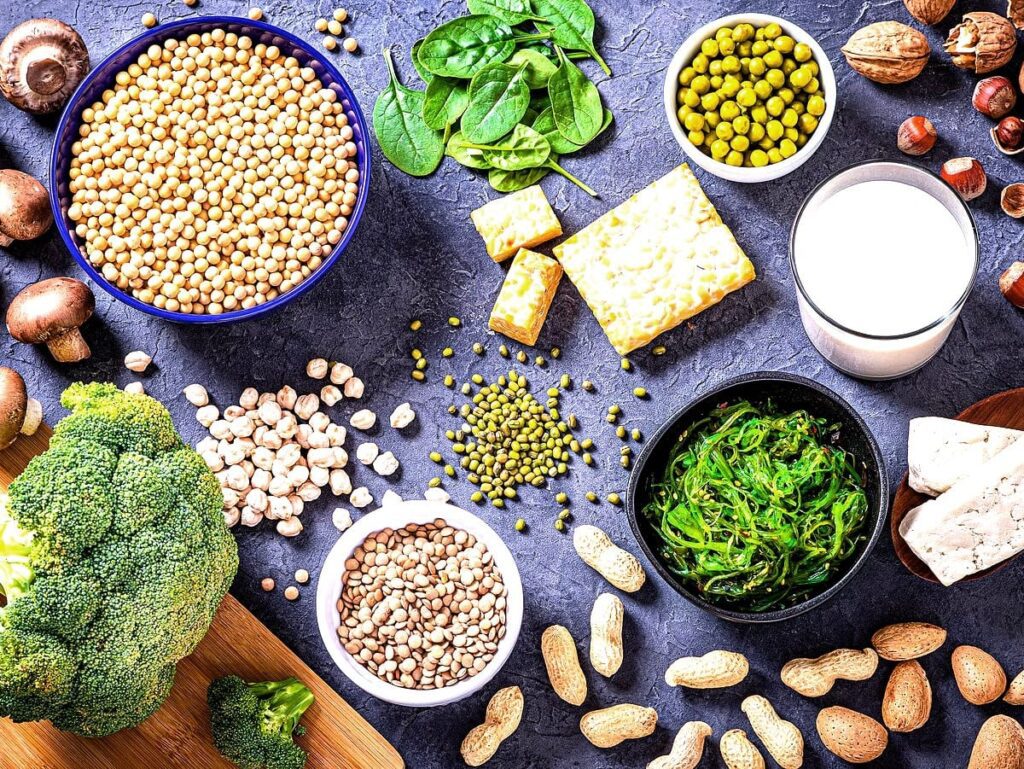Why Plant Protein Matters for Heart Health
Eating more plant-based protein compared to animal protein offers numerous health benefits, especially for your heart. A groundbreaking study spanning 30 years, published in The American Journal of Clinical Nutrition, has revealed compelling findings. It showed that individuals who consumed a higher ratio of plant-based protein to animal-based protein had a 19% reduced risk of cardiovascular disease (CVD) and a 27% reduced risk of coronary heart disease (CHD).

Experts believe this is linked to the nutritional makeup of plant proteins. Foods like legumes, nuts, seeds, and grains are naturally rich in fiber, healthy fats, vitamins, and antioxidants, while being low in saturated fats. These properties promote better heart health and reduce inflammation and cholesterol levels.
The Science Behind the Shift to Plant Protein
Researchers at Harvard T.H. Chan School of Public Health analyzed dietary and health data from over 203,000 participants involved in the Nurses’ Health Studies I and II and the Health Professionals Follow-up Study. Participants reported their dietary habits every four years, providing valuable insights into their protein intake.
The study adjusted for factors such as age, health history, lifestyle, and socioeconomic background. Findings revealed that:
- A plant-to-animal protein ratio of at least 1:2 significantly lowered the risk of CVD.
- A ratio of 1:1.3 or higher was even more effective in preventing CHD.
Interestingly, the protective effects increased as the proportion of plant-based protein in the diet rose. For example, substituting processed or red meat with plant proteins like beans or nuts proved particularly beneficial.
What Makes Plant Protein So Beneficial?
Plant-based protein sources bring an array of health-promoting nutrients to your plate:
- High Fiber Content: Unlike animal protein, plant proteins are packed with fiber, which helps reduce cholesterol levels, control blood sugar, and maintain a healthy weight.
- Healthy Fats: Nuts and seeds are excellent sources of unsaturated fats, which support cardiovascular health.
- Low Saturated Fat: Animal proteins like red and processed meats are major sources of saturated fats, which can increase the risk of heart disease.
- Antioxidants and Phytochemicals: Plant foods provide natural compounds that combat inflammation and oxidative stress.
How to Incorporate More Plant-Based Proteins Into Your Diet
Making the switch doesn’t mean giving up meat entirely. It’s about finding a balance. Here are some practical ways to get started:
- Replace Red Meat: Swap beef or pork with lentils, chickpeas, or black beans in your favorite recipes. For example, use lentils in shepherd’s pie or chickpeas in curries.
- Snack Smart: Replace processed snacks with nuts, seeds, or roasted chickpeas.
- Try Meat Alternatives: Explore tofu, tempeh, or seitan as substitutes in stir-fries, salads, or grilled dishes.
- Embrace Global Cuisine: Many cultures have heart-healthy, plant-based staples like hummus, chana masala, or rice and beans. Incorporate these into your weekly menu.
- Add Variety: Experiment with quinoa, farro, or bulgur as a base for salads and bowls instead of meat.
What Experts Say About Plant-Based Eating
Dr. Andrea Glenn, the study’s lead author, emphasizes the importance of rethinking our protein sources:
“The average American consumes a 1:3 plant-to-animal protein ratio. Moving toward a 1:2 or even higher ratio can significantly benefit heart health.”
Christopher Gardner, PhD, a nutrition expert at Stanford, agrees and highlights the practical aspect of adopting this approach:
“It doesn’t have to be all or nothing. Small, gradual changes—like replacing one or two meals a week with plant-based options—can make a big difference.”
Global Inspiration for Plant-Based Diets
Cultures worldwide offer incredible examples of plant-based eating:
- Asian Cuisine: Soy-based foods like tofu and tempeh are staples, along with edamame and miso soup.
- Middle Eastern Cuisine: Hummus, falafel, and lentil-based dishes are flavorful and nutritious.
- Indian Cuisine: Dal (lentils), chana masala (chickpeas), and aloo gobi (spiced potatoes and cauliflower) are rich in plant protein.
- Latin American Cuisine: Dishes like black beans and rice or lentil stew are affordable and delicious options.
These examples show that plant-based diets aren’t limited to bland salads but can include diverse, flavorful meals from around the globe.
The Benefits Go Beyond Heart Health
Shifting to plant-based protein is not only good for your heart but also has broader health implications:
- Weight Management: High fiber content keeps you feeling full longer, which helps control hunger.
- Better Gut Health: Fiber feeds beneficial gut bacteria, promoting overall digestive health.
- Environmental Sustainability: Reducing meat consumption lowers your carbon footprint, benefiting the planet.
